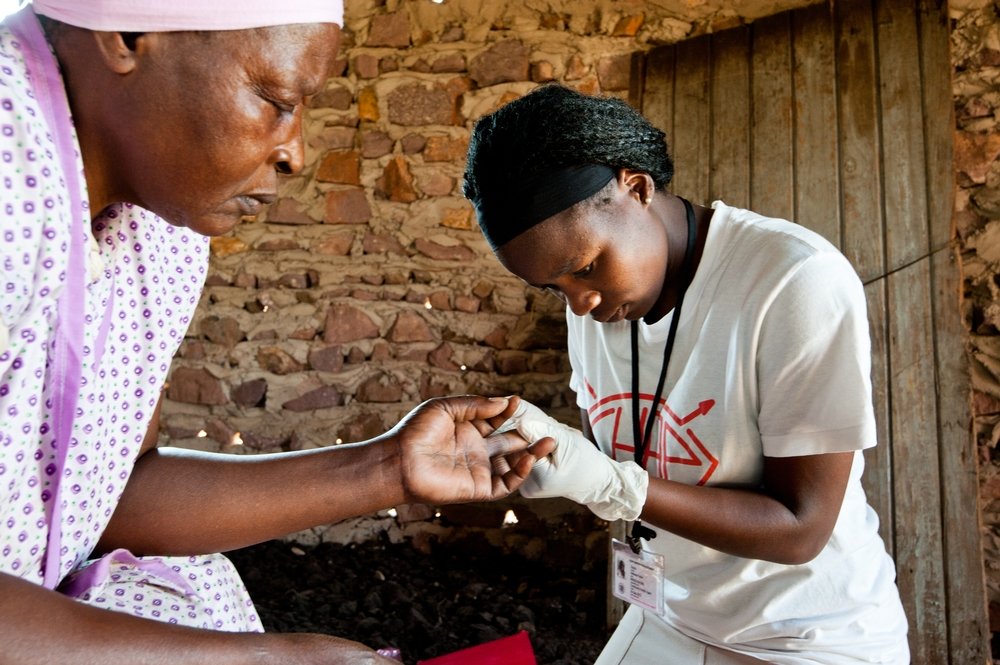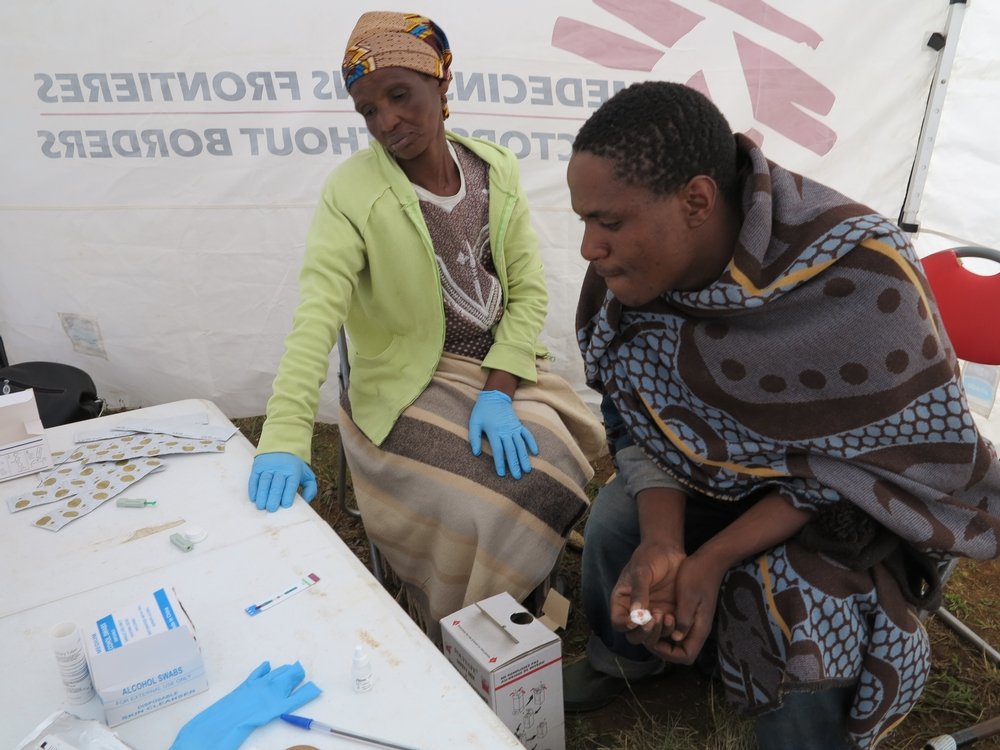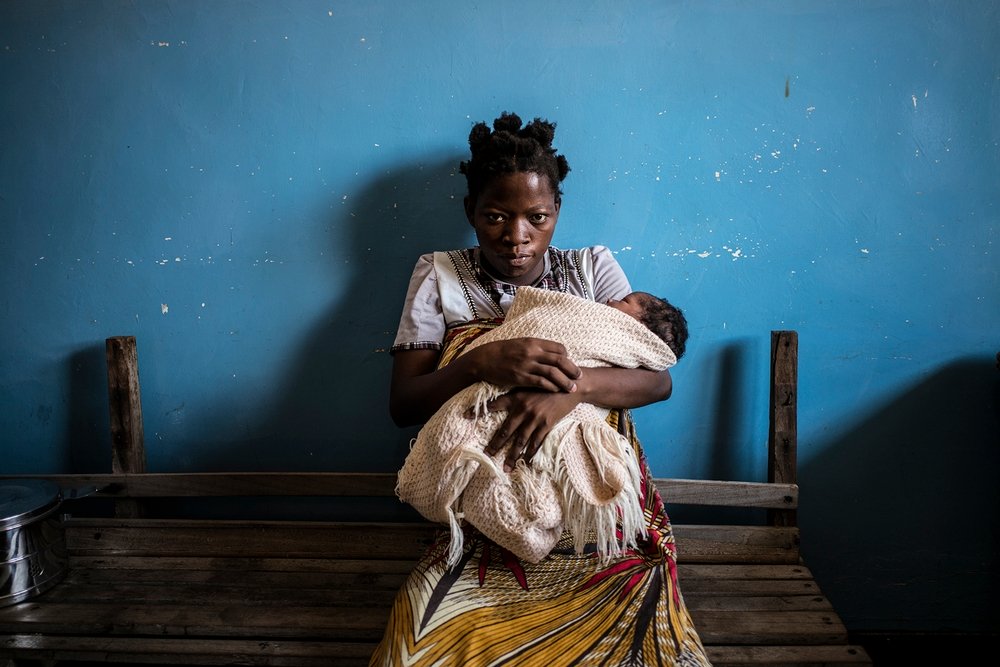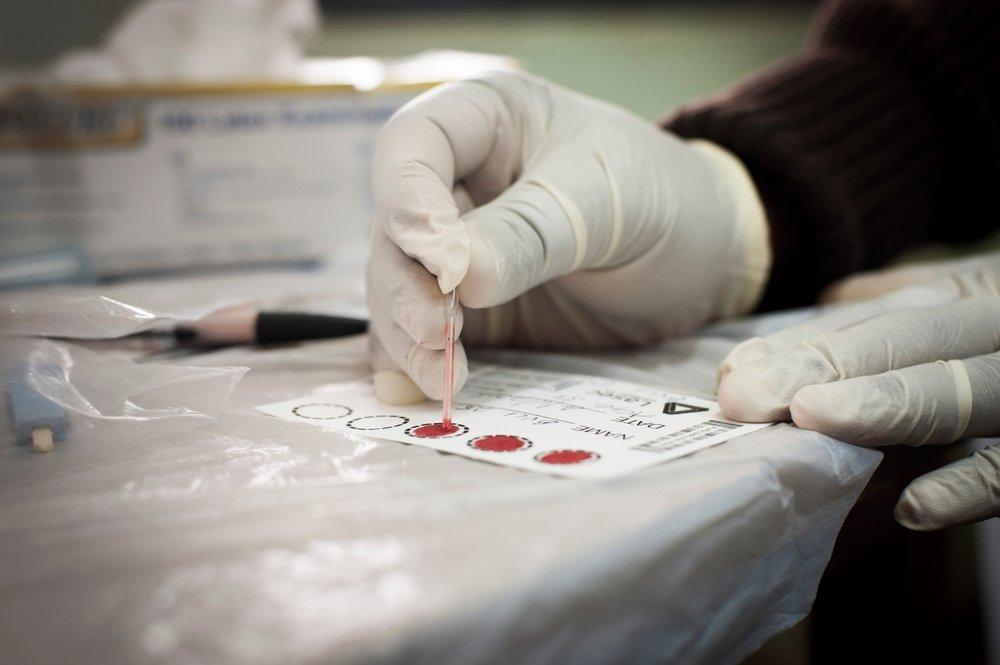
Health Minister Aaron Motsoaledi announced in his health budget vote speech delivered in Parliament on 23 July 2014 that South Africa will move to treating HIV-positive patients with anti-retrovirals (ARVs) at an earlier stage, starting January 2015.
The new treatment regimen will be in line with guidelines introduced by the World Health Organisation (WHO) in 2013, which recommends that countries give HIV-positive patients ARVs sooner.
Please find below MSF’s response to the speech, which can be attributed to Dr. Gilles van Cutsem, MSF’s Medical Coordinator for South Africa and Lesotho:
“MSF welcomes the bold shift which can allow South Africa to be at the forefront of the fight against HIV and catch up with policies already adopted in other countries in the region such as Mozambique, Malawi and Zimbabwe.

The decision to initiate patients earlier in the progression of their disease is an important step, not only because it will prevent people from becoming sick or dying because of HIV, but also because people on treatment have only a very small risk of transmitting the disease. Early initiation is therefore a crucial tool in containing the progression of HIV which still infect close to half a million South African each year.
But to be effective it will require increased efforts at all steps of HIV care. Just as important as to initiate more people on treatment we need to make sure that the people stay on treatment for the rest of their lives.
That is particularly difficult when people who do not feel sick are required to dutifully take a treatment every day for what is then a chronic disease. Today, as Minister Motsoaledi announced, a third of patients initiated abandon their treatment within three years. This can only be curtailed if there is a strong investment both in counselling services helping people living with HIV to stay on treatment, as well as in community models of care that reinvent ways to make access to drugs easier for patients who often have to travel long distances and spend hours in health centres before getting their drug refill. Those tools would improve the situation of the quarter of South African already on treatment who have not yet managed to reach an “undetectable” viral load. This indicates that their treatment is not working properly, either because they do not take it with enough regularity or because they have developed resistance to their treatment.

Finally, and crucially, the scale up in the fight against HIV will only work if there is no shortage of antiretroviral drugs which still affect many health facilities today, especially in the Free State. The South African department of health needs to put in place an emergency response capacity to respond to stock outs, while longer term solutions are being put in place. Facilities and depots will especially need support to help with current and future forecasting as this is one of the causes of stock outs. Adding more patients will also cause more congestion in already crowded facilities. New community models are needed to dispense drugs among stable patients outside the clinic to relieve some of the pressure.”
Find out more about MSF in South Africa.
